Kidney stones can be extremely painful, but knowing the right foods to eat and avoid can play a significant role in preventing them.
Kidneys detoxify the body by removing excess liquids and waste from the foods you eat. But when you consume an unhealthy diet, you add to your kidneys’ workload and challenge their ability to get their job done. Certain foods and drinks can strain the kidneys or increase the risk of health complications like kidney stones.
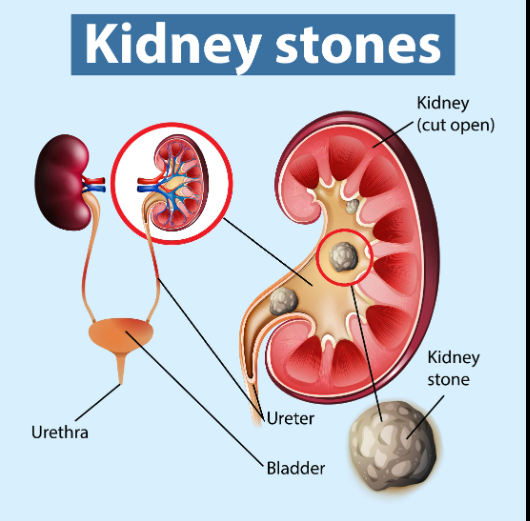
Also read-Raw Food Diet: Uses, Work And Effects Of Raw Food Diet
The pain of kidney stones can be excruciating, but your diet can play a significant role in preventing them. If you have a history of kidney stones or want to reduce your risk of developing one in the future, learning about the right foods for kidney health is key.
What Causes Kidney Stones
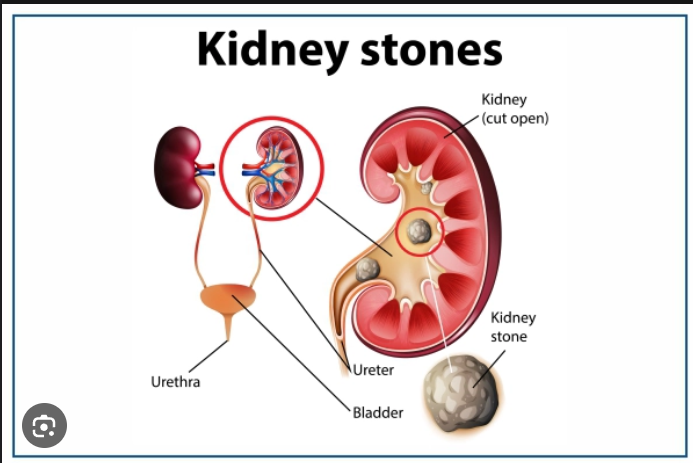
One of the kidneys’ important jobs is the elimination of waste through the creation of urine. However, obstructions or buildups can obstruct this process. Kidney stones are solid, frequently uncomfortable chemical obstructions. Depending on their size and kind, stones may move through the urinary tract and be eliminated when you use the restroom, or they may sit in the kidneys and cause excruciating pain when you ‘pass’ them.
According to the National Kidney Foundation, 10% of people at some point in their lives will have kidney stones.
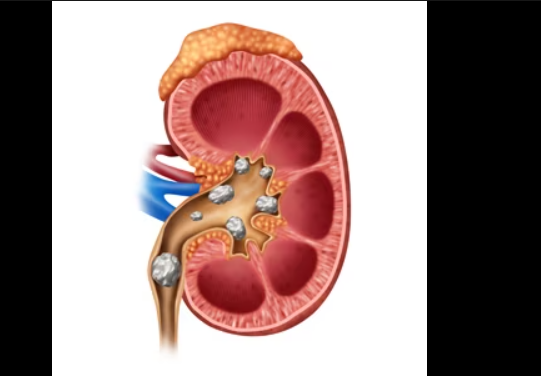
Kidney stone development risks for individuals might vary depending on a number of variables, including:
- Personal or family health history of kidney stones.
- Obesity.
- Diabetes.
- Kidney conditions
- Dehydration
- A diet high in sodium or an otherwise unhealthy diet.
Chemical accumulation, such as that of calcium, oxalate, urate, cystine, xanthine, and phosphate, can result in the formation of stones. According to Dr. Alice Wei, officer of the Chief Medical Office at Strive Health, a kidney care organization, because of this variation, a diet that successfully treats one type of kidney stone may fall short of successfully treating another. She calls New York City home. Wei advises scheduling a stone analysis appointment with a nephrologist or urologist in order to best tailor your dietary strategy.
Types of kidney stones:
- Calcium oxalate stones.
- Uric acid stones
- Struvite stones.
- Cystine stones.
The most common type of kidney stone is a calcium oxalate stone, which forms when calcium combines with oxalate in your urine. Oxalate is a substance found in many foods, particularly plant-based foods. Eighty percent of kidney stones are formed by calcium oxalate. Causes of calcium oxalate stones include a diet high in oxalate and not consuming enough calcium or fluid.
Uric acid stones occur when your urine is too acidic. For instance, you may have lost fluid due to dehydration or diarrhea, says registered dietitian Kimberly Barton of Bair Aesthetics in Columbus, Ohio. A diet that is high in protein may also lead to uric acid stones. Uric acid stones make up about 9% of the stones that occur in people, Semins says.
Struvite stones are commonly linked to urinary tract infections. They form when ammonia builds up in your urine.
Cystine stones are the least common type of kidney stone, and they’re formed by a genetic disorder called cystinuria. A person with cystinuria leaks a substance called cystine in their urine. When there’s too much cystine, it can lead to the formation of kidney stones. An estimated 1 in 7,000 people have cystinuria.
How to Prevent Kidney Stones and Improve Kidney Health
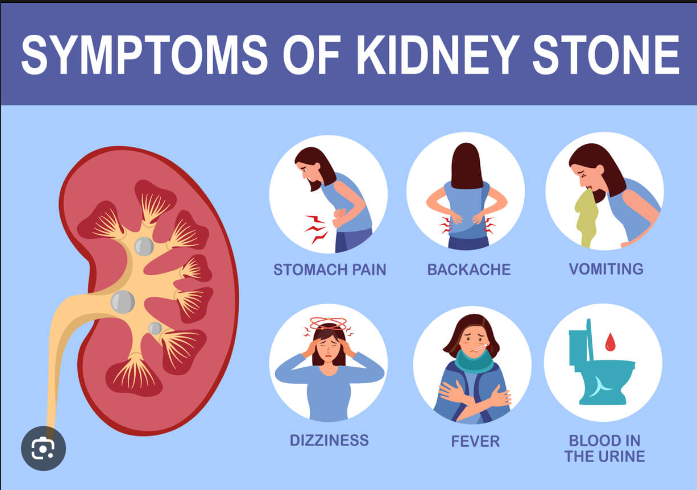
A nutritious diet can lower your risk of developing kidney stones and make them easier to pass if they do. However, because everyone has different health conditions and contextual hazards, food may not be enough to stop a stone from forming or assist in passing one.
Still, for any kidney stone type, increasing your water intake and reducing your salt intake can help lay the groundwork for kidney stone avoidance. The following advice will help prevent calcium oxalate stones, the most common type of kidney stone. It’s crucial to visit the doctor for a stone assessment if you currently have a stone but are unsure of its type.
Medical Interventions for Kidney Stones
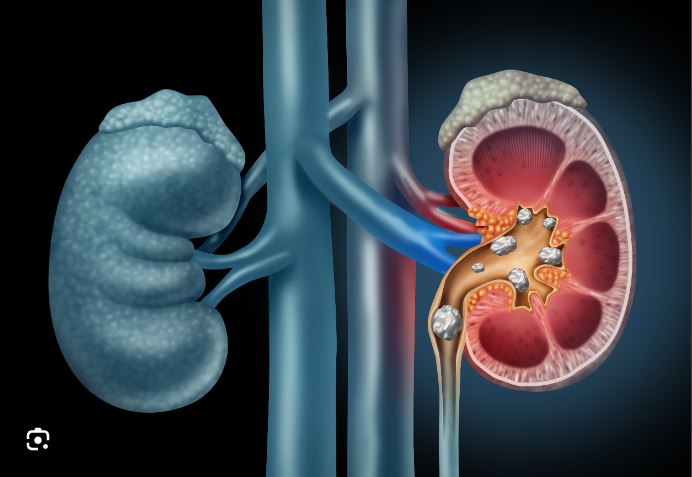
Consulting your doctor about a kidney stone doesn’t hurt, especially if it hurts. While a doctor might advise dietary treatments like those listed above, they might also be able to offer you a more specialized treatment to address your particular needs. They might also recommend supplements.
Your doctor may recommend or prescribe painkillers to help you feel more comfortable, depending on how much pain you’re in. Additionally, they can suggest water tablets or a diuretic to help you clear the stone.
Your doctor may recommend a technique like a ureteroscopy, shockwave lithotripsy, percutaneous nephrolithotomy, or, in rare cases, open stone surgery if the stone is too big to clear with diet and over-the-counter drugs. These all include different techniques for dissolving and removing kidney stones from your body. The most invasive and least usual approach is open stone surgery.
Warning: Due to the tight relationship between the urinary system and the kidneys, some people believe that kidney stone prevention techniques can be applied to UTI prevention strategies. Sadly, this isn’t always the case. The oxalate content in cranberry juice, a common UTI preventative, is high and may raise the risk of kidney stone development. So stay away.
The Take-Home
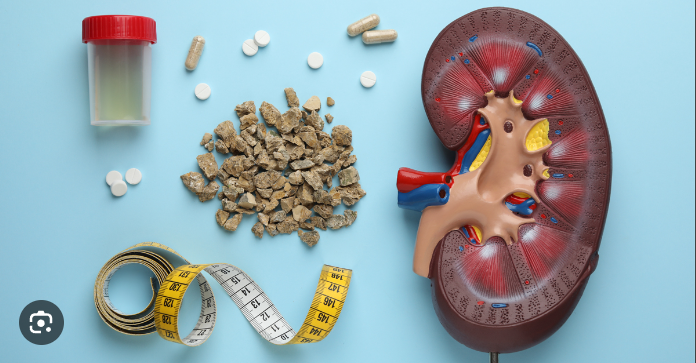
When it comes to a kidney-supportive diet, balance is key. If your goal is kidney stone prevention, being mindful to increase hydration and decrease sodium intake should be your first and second in command. From there, a combination of following the above tips, listening to your body, and talking with a health professional can help devise a supportive diet.
“No food is ever totally off-limits. It’s all about moderation,” Gregory says.
If you are in need of more guidance, she adds that “whole fresh foods that you prepare are always the best bet,” and so long as you are mindful of oxalate and sodium content, countless fruits and vegetables can benefit your health and contribute to a kidney-healthy diet.
Check in with your doctor if you feel that you have developed a kidney stone or if you are at risk for a more serious complication like kidney disease, in which case some foods may be off limits. If you have kidney disease or failure, you will need to follow an individualized meal plan.
If you do not have an individualized meal plan, focusing on whole, fresh foods can ward off kidney complications and a slew of other health conditions that are brought on by a bad diet.
“If you experience any decline in kidney function, adequate nutrition is key, as you are at greater risk for malnutrition,” Gregory says. She encourages working closely with your physician or dietitian to individualize a meal plan.
Also read-Best Low-Calorie Foods: Meals, Snacks And Dessert Ideas
images source: google



































